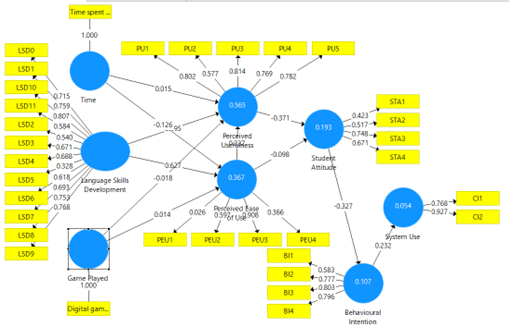Investigation of the relationship between time investment and language learning through digital games
DOI:
https://doi.org/10.17083/ijsg.v12i1.845Keywords:
Digital gaming, Language learning, Time factor, Students’ attitudes, Technology Acceptance ModelAbstract
As the use of digital games in foreign language learning has increased, there is a demand for investigations that would offer a window into contemporary breakthroughs in this growingly prominent field of foreign language learning. A plethora of research papers have dealt with the effects of digital gaming on language skills, such as vocabulary and speaking. However, to date, there is a scarcity of studies that examine how the amount of time spent on digital games influences the development of a second language. Thus, the present study attempts to determine if there is any correlation between the amount of time spent on digital games (non-instructional games) and second language development. It also attempts to verify whether there is any effect of games played on their attitudes toward digital gaming as a type of informal digital language learning. The methodology used is quantitative using the Technology Acceptance Model (TAM). The sample consisted of 350 college students from Iraq and the Czech Republic who all study English as a foreign language. The findings reveal a weak correlation between the digital games played, which means there is no impact between the time of playing and TAM factors. It further reveals that the most engaging and popular game among students was PUBG and that students’ attitudes are affected positively depending on the game they played. Finally, the findings clarified that TAM factors can be positively affected by language skill development through the use of digital games in learning.

Downloads
Published
Issue
Section
License
Copyright (c) 2025 Liqaa Habeb, Marcel Pikhart, Ragad Tawafak, Blanka Klimova

This work is licensed under a Creative Commons Attribution-NonCommercial-NoDerivatives 4.0 International License.
IJSG copyright information is provided here.